COMPARING THE DELE / SIELE & OPI SPANISH TESTS
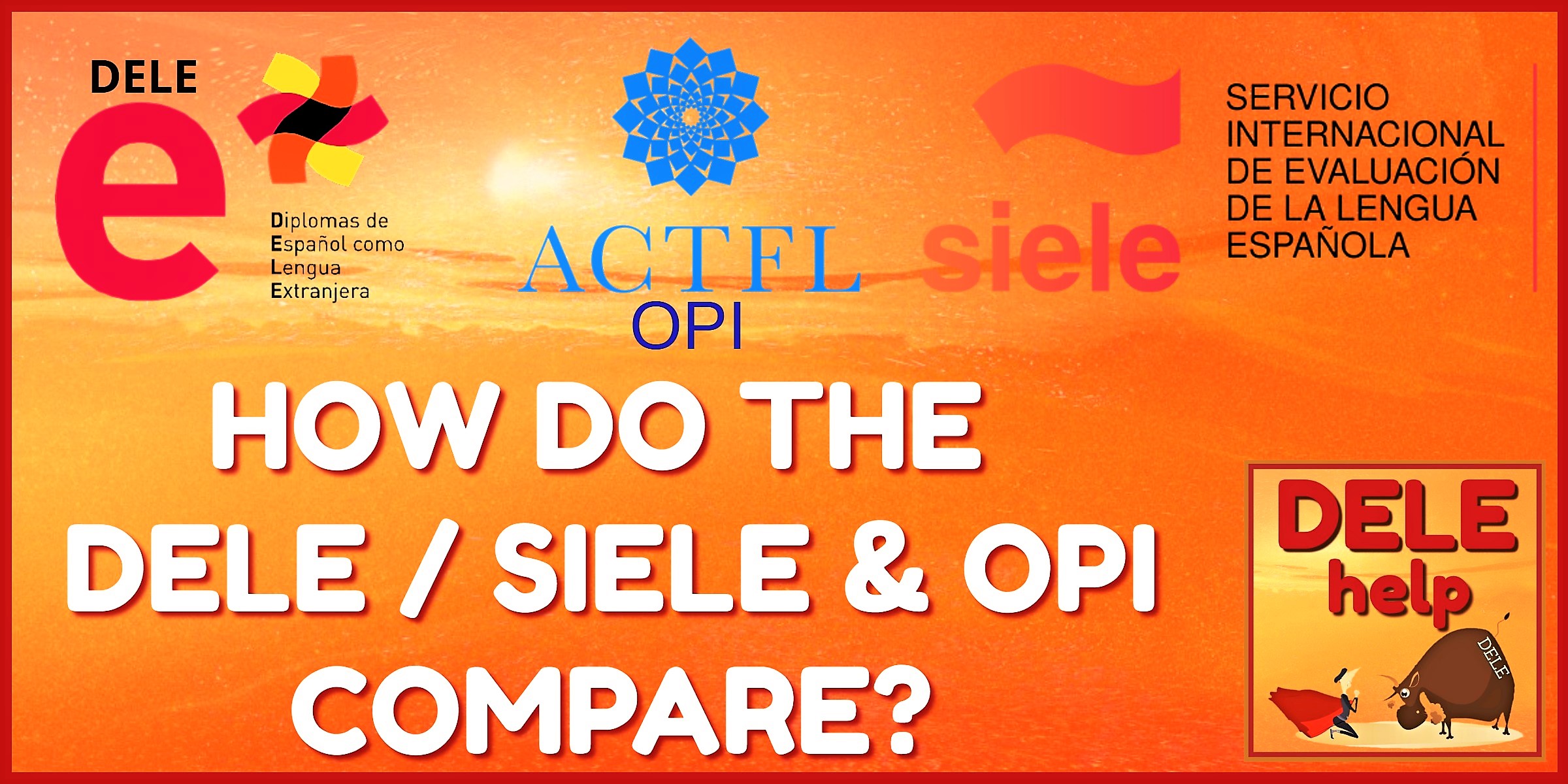
OVERVIEW:
At DELEhelp we are often asked how the three main Spanish language competency exams, the DELE, the SIELE and the OPI compare, since we are official proctors for the American OPI system, as well as accredited SIELE exam coordinators (and I myself as writer of this post, have a DELE C2 diploma).
THE THREE OPTIONS: The traditional style “pen & paper” DELE exam of the Instituto Cervantes of Spain is long established and thus probably the most widely known Spanish language competency test. However, modern technology now offers two equally valid additional options. Both can be taken online, with much more flexibility and convenience. One is the SIELE (which the Instituto Cervantes launched in 2016 as essentially an online twin for the DELE). The other is the American OPIc – the Oral Proficiency Interview via computer – of the ACTFL (the American Council on the Teaching of Foreign Languages).
These online exams offer not only a choice of accreditation between Spain and the USA. They also offer relief to those students who need their results quickly (not the three months that the DELE results take), and who want to take their exam any day of the year (i.e., not be limited to one of the five dates that the DELE offers). In particular, the SIELE and the OPIc offer relief to students who do not want, or do not need, simultaneous testing in all four communication formats (listen, read, write, speak) which remains an onerous obligation with the DELE. If you only need, for example, your oral proficiency assessed and certified (or any combination of the four competencies) then the SIELE in its different component forms, or the ACTFL package of competency tests for speaking, writing and reading & listening comprehension would be much more suited for you.
Lastly, both the SIELE and the ACTFL online tests are multi–level exams that peg you at your right level for each competency individually. Unlike the DELE, you don’t have to commit yourself to passing all of these competency tests at one specific level, on one day (for instance, B2). And unlike the DELE, you effectively can’t fail SIELE or the OPI/WPT/LPT/RPT (whereas the DELE you most definitely can fail, if you do not achieve an across the board pass for the four competencies together, in their same-day exam).
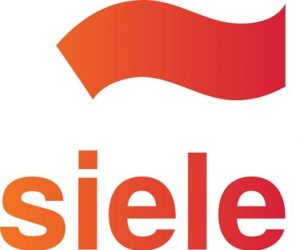 THE SIELE EXAM PACKAGE:
THE SIELE EXAM PACKAGE:
The SIELE and the DELE use the same curriculum and scoring criteria. They both qualify you i.t.o. the same levels (A1, A2, B1, B2, C1) and the certificates for both are signed by the same official – the Director of Studies of the Instituto Cervantes. If you want to do the top C2 level, though, you can still only do that through the DELE. The SIELE has eliminated many of the logistical nightmares associated with the DELE, and introduced newfound flexibility – both regarding the dates when you can sit the SIELE (practically any day of the year, as opposed to five fixed dates for the DELE) and the fact that the SIELE allows you to test for only one competency at a time, if you wish (as opposed to the DELE’s obligation of doing all four in one sitting). You also typically get your SIELE certificate within three days of doing the exam, whereas you have to wait THREE MONTHS for your DELE results (and another three months for the actual diploma to arrive). We have published a detailed blogpost about the SIELE, so I will not repeat all the details here. You can access the post by clicking on this link: https://delehelp.org/the-siele-exam-is-fast-flexible-and-fail-proof/

SPAIN OR USA? When you look beyond the Instituto Cervantes of Spain’s DELE / SIELE and you consider the American ACTFL’s options as well, there is one essential question to ask yourself – especially if you need certification for university study purposes or employment in a public service position: do you intend studying at a North American college or work for a U.S. entity? If that is the case, then the ACTFL’s package of OPI/WPT/LPT/RPT may be your more appropriate choice (even though many American academic institutions do also recognize the DELE and increasingly, the new SIELE).
 If your personal goal – or your professional / social need – is no more than to be able to converse, then one of the best general certifications (for Americans especially), is the OPI / OPIc test of the ACTFL. Keep in mind that, although the ACTFL tests are commonly known as the OPI, they are not limited to assessing oral proficiency only – you can do the WPT, RPT and the LPT (the writing proficiency test, and those for reading and listening proficiency), similar to those offered under the SIELE banner. These three additional proficiency tests are all done individually online, in much the same easy way as the OPIc (the classic OPI is still done by telephone, but has in practice been largely superseded by the OPIc).
If your personal goal – or your professional / social need – is no more than to be able to converse, then one of the best general certifications (for Americans especially), is the OPI / OPIc test of the ACTFL. Keep in mind that, although the ACTFL tests are commonly known as the OPI, they are not limited to assessing oral proficiency only – you can do the WPT, RPT and the LPT (the writing proficiency test, and those for reading and listening proficiency), similar to those offered under the SIELE banner. These three additional proficiency tests are all done individually online, in much the same easy way as the OPIc (the classic OPI is still done by telephone, but has in practice been largely superseded by the OPIc).
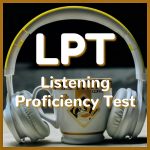
Public sector institutions in the USA (many of which are grouped together in the inter-agency round table for languages or ILR, associated with the ACTFL) obviously accord preference to the OPI/OPIc. It stands to reason that most academic institutions in the USA are also familiar with the ACTFL and its testing, for credit purposes. Many private sector institutions in the USA, such as business employers and private schools seeking to appoint teaching staff, require OPI/OPIc certification from applicant employees as well. 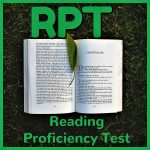
This blogpost will essentially describe the OPI and OPIc, plus what we here at DELEhelp can do to assist you in your preparation for the interview, whether it be the online or “by phone” version.
MAIN DIFFEENCES BETWEEN THE DELE / SIELE AND ACTFL TESTS:
Whereas the DELE tests all four components of communicative competencies as integral, obligatory parts of one exam sitting, on the same day, the ACTFL and the SIELE test these competencies individually: in the case of the ACTFL, in the form of the OPI / WPT / RPT / LPT stand-alone tests. These can – if one so chooses – be taken on different days and it’s possible also to choose to do only one test, and no more: like the OPIc or the SIELE S4, both being just oral proficiency.
For the DELE exam, the candidate must register for one of six progressively more difficult levels, from A1 to C2, and pass all the competencies at that same level/standard in one exam. Fail one and you fail all. In the case of the OPI and also for the WPT/RPT/LPT, there is no testing level to pre-select on the part of the candidate. Each competency is assessed independently. The generic interview / test format allows for candidates to be assessed and a level of proficiency to be certified for each competency, on the ACTFL scale of ten, ranging from “novice low” through “intermediate mid” to “superior”, or the ILR (Inter-Agency Language Roundtable) scale of 0 to 5, with the latter being equivalent to “functionally native”. It is possible, though, with the ACTFL’s tests to request that your certificates be issued i.t.o. the European 6-level scale (A1/A2, B1/B2 & C1/C2).
The physical exam format is also different: for the DELE, the candidate must present in person at a certified examination center across the globe, pen in hand, on one of five pre-set exam dates during the year. The OPI is an interview conducted by telephone, and the OPIc is an online test by computer (as are the WPT/LPT/RPT), which can be taken at any pre-arranged time of year, taken wherever the candidate finds him/herself (where there is a proctor available). The OPI/OPIc can usually be scheduled within a few working days. The tests are conducted i.t.o. the ACTFL assessment protocol by Language Testing International (LTI). To request an oral proficiency interview, the candidate needs the co-operation of an institution that can procurate the test (i.e., vouch for the identity of the candidate and oversee adherence to the rules) which may be an accredited school or one’s own employer. Our terrestrial partner school here in La Antigua Guatemala, PROBIGUA, is such a proctor institution. The certified OPI/OPIc or other ACTFL proficiency test result is normally available within ten working days (the DELE usually takes three months).
THE ORAL PROFICIENCY INTERVIEW:
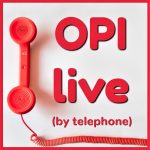 The traditional-style OPI interview (as opposed to the OPIc interview) is conducted live by a qualified tester, by phone; it is recorded and usually further assessed by a second examiner, before a proficiency level is certified. The interview lasts from twenty to forty minutes. The objective is to assess the candidate’s ability to use the language orally in real-life situations. The manner in which the candidate acquired Spanish is not important, nor is there any set coursework or curriculum to cover. The candidate is tested against a standard set of criteria, essentially by means of questions and answers broadly intended to resemble a conversation. The tester will structure the questions in such a way as to oblige the candidate to use different tenses, such as past and future, and to express hypotheses and wishes – in this way indirectly testing knowledge of grammar and (above all) your ability to apply this knowledge. The format also makes provision for using role-play at some point, which the tester will introduce and explain in English.
The traditional-style OPI interview (as opposed to the OPIc interview) is conducted live by a qualified tester, by phone; it is recorded and usually further assessed by a second examiner, before a proficiency level is certified. The interview lasts from twenty to forty minutes. The objective is to assess the candidate’s ability to use the language orally in real-life situations. The manner in which the candidate acquired Spanish is not important, nor is there any set coursework or curriculum to cover. The candidate is tested against a standard set of criteria, essentially by means of questions and answers broadly intended to resemble a conversation. The tester will structure the questions in such a way as to oblige the candidate to use different tenses, such as past and future, and to express hypotheses and wishes – in this way indirectly testing knowledge of grammar and (above all) your ability to apply this knowledge. The format also makes provision for using role-play at some point, which the tester will introduce and explain in English.
Testers are under strict instructions to avoid contentious topics such as politics and religion. A manual for OPI testers explains how topics should be selected:
- Warm-up topics should focus on autobiographical information, educational background, work or profession, interests, hobbies, etc.
- The tester’s role is to develop topics that are of interest to the candidate so that the candidate is engaged in the discussion naturally and spontaneously.
- Topics to pursue (if previously mentioned by the candidate) include:
Education, work experiences, future career ambitions, consumerism, customer service, sports, exercise, the workplace in the 21st Century, innovations, urban, suburban, rural communities and lifestyles, transportation, traffic, ecology, the environment, industry (financial, service, manufacturing), classical culture, art, music, popular culture, TV, movies, fashion, technology, computers, hobbies, special interests, food, diet, entertainment, pets, automobiles, tourism, travel, science, medicine, history, etc.
 The online OPIc is an advance on the OPI, since it eliminates the human factor in the interviewing, and is therefore even more standardized. The first important thing to note about the OPIc is that all instructions are in English, as opposed to the DELE / SIELE, where all instructions are in Spanish only.
The online OPIc is an advance on the OPI, since it eliminates the human factor in the interviewing, and is therefore even more standardized. The first important thing to note about the OPIc is that all instructions are in English, as opposed to the DELE / SIELE, where all instructions are in Spanish only.
This is obviously a great advantage for English-speaking students, which is further enhanced by the ACTFL’s ample study materials in English for preparing for the OPIc.
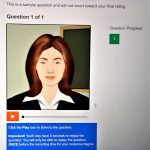 You will be interviewed by a friendly avatar called AVA, who will first establish with you the topics that most interest you in life, and then allow you to choose the main themes about which you want to be interviewed. The conversations start out at the level that you yourself had rated your Spanish to be at (done in the biographical segment that introduces the test). It thus allows you to “warm up” with well-known topics that you’ve identified as being of interest to you, regarding sport, recreation, your work, family etc. It then steadily escalates to the main themes you chose, as below:
You will be interviewed by a friendly avatar called AVA, who will first establish with you the topics that most interest you in life, and then allow you to choose the main themes about which you want to be interviewed. The conversations start out at the level that you yourself had rated your Spanish to be at (done in the biographical segment that introduces the test). It thus allows you to “warm up” with well-known topics that you’ve identified as being of interest to you, regarding sport, recreation, your work, family etc. It then steadily escalates to the main themes you chose, as below: 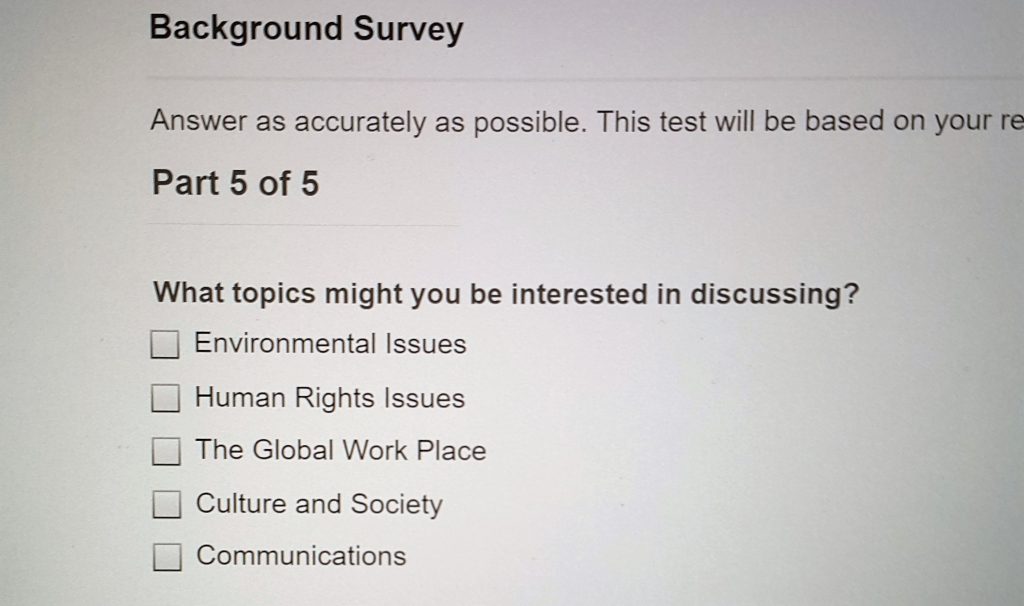
The test is similar to climbing a stairway, with the objective being to see at how high a level you can sustain the conversation (the “floor”) and where you find the going impossibly tough (the “ceiling”). Student feed-back has been that the OPIc format is very user-friendly, keeping one at ease and without undue time pressure. The fact that the instructions are, as mentioned, in English is also a clear advantage for students with working knowledge of English – especially if you are still a relative beginner at Spanish.
From our own practical experience of the DELE / SIELE / OPI exam formats, we can testify to the fact that the OPIc is by far the most technologically advanced and also robust against hiccups. Yet it is also the most simple, intuitive and human-friendly to use. So, if your accreditation requirements are satisfied by the OPIc, don’t hesitate to go for it.
From observing students, it appears that people actually have fun doing the test.

For more information on the Oral Proficiency Interview by computer OPIc, have a look at this LTI website (it includes a demo exam you can try):
https://www.languagetesting.com/oral-proficiency-interview-by-computer-opic
The ACTFL has 76 OPI sample videos on YouTube, which you can look at via this link:
https://www.youtube.com/watch?v=MWx_y3LsB3w&list=PLh_cfDwS8mrt6d3RFa5QdVnxktSfS8sS0
We have prepared a DELEhelp BLOG POST specifically on the OPIc, with lots of detail and acing tips – you can access it by clicking on the image below:
DELEhelp CAN PREPARE YOU FOR THE ACTFL TESTS like the OPIc
From the above, it is evident that the objectives of the DELE / SIELE and the ACTFL tests are very similar, as are their approach based on “can do” competency. This being the case, you will understand why our tutors here at DELEhelp would be very able (and happy) to assist your preparation for doing the ACTFL tests – particularly the OPIc, if your aim is purely to demonstrate competency at speaking. As with the DELE / SIELE oral prep, the key to effective preparation for the OPIc is lots of oral practice (via Skype) with a qualified tutor who can simulate the OPIc interviews and provide you with feed-back and correction. Depending on what level of OPIc certification you would like to achieve, a personalized study plan will be developed to help you with mastering the appropriate lexis (vocabulary and phrases) and grammar necessary to achieve the coherent, fluent speaking required for the standard you are aiming for. Our programs and lesson hours are entirely flexible, and at only US$18 per hour (from 1st of February 2022), our rates are unbeatable.
If you want to ask for our free, no-obligation e-book for preparing for the OPI/OPIc, and/or if you would like to do a free exploratory Skype session with me, in English, about what coaching assistance we can offer you (with no obligation), please use the convenient contact information form that you can access by clicking on the image below:
CHECK OUT OUR DELEHELP YOUTUBE CHANNEL for DELE/SIELE & OPI tips

This is the link to our channel: https://www.youtube.com/channel/UCSvCNnuilLmt4pRwxY8NE7g/videos
Please don’t forget the opportunity offered, for a free exploratory conversation with myself about your exam.
Buena suerte with your preparation!
Saludos cordiales
Willem Steenkamp
Director of Studies emeritus: Excellentia Didactica


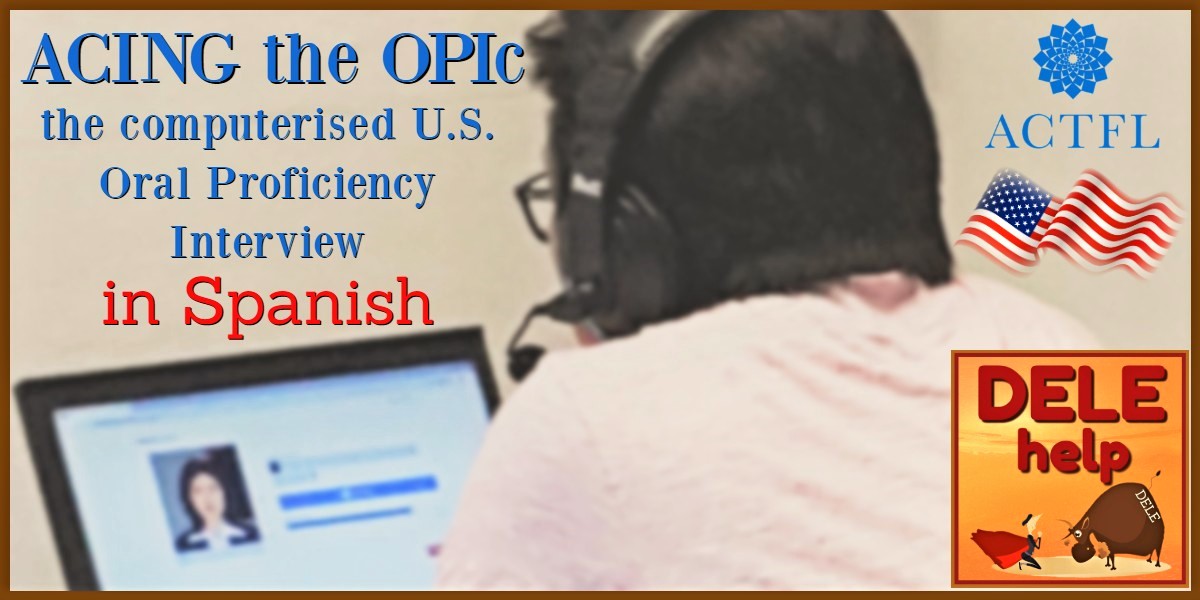
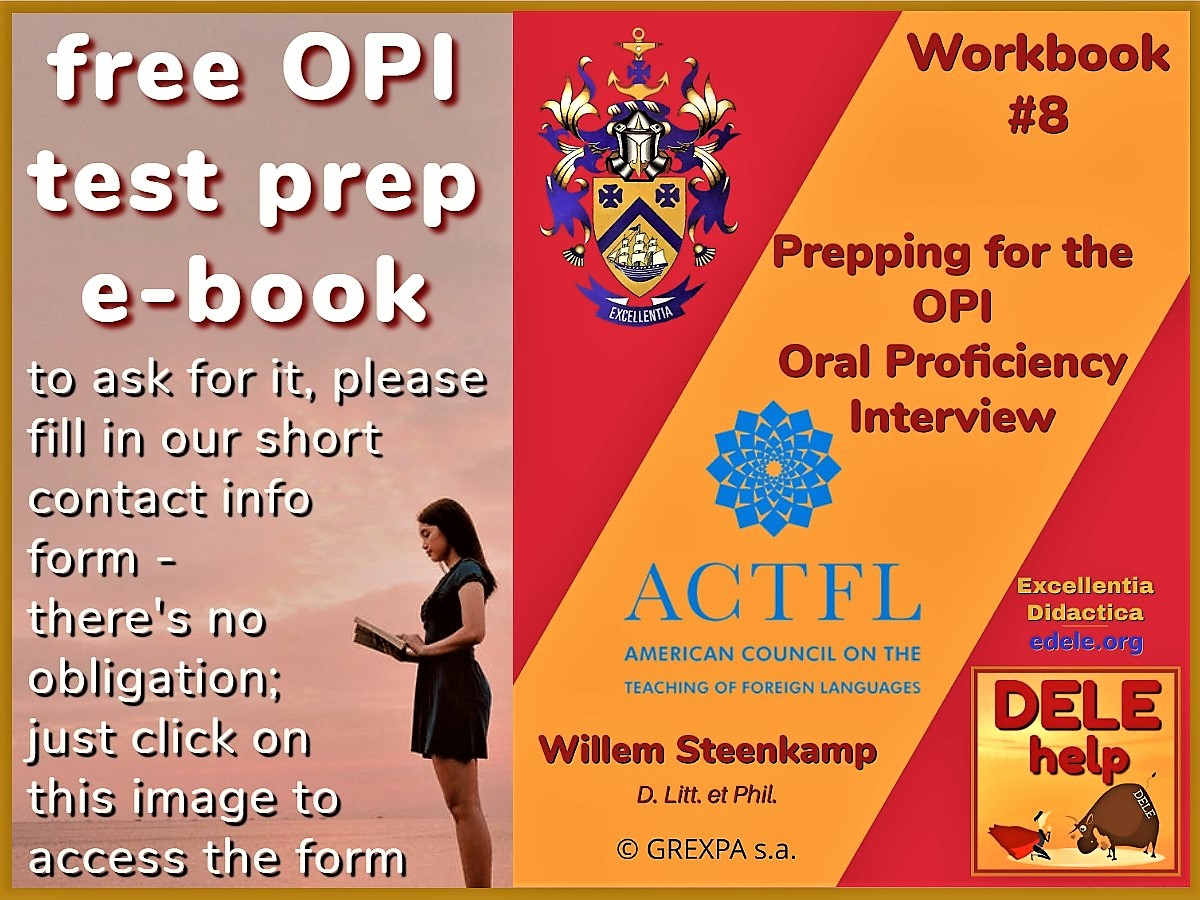

I am excited to explore this program as I want to take the OPI and the SIELE.
Pingback: THE OPI/OPIc SPANISH TEST AT “ADVANCED-LOW” LEVEL EXPLAINED - DELEhelp Blog